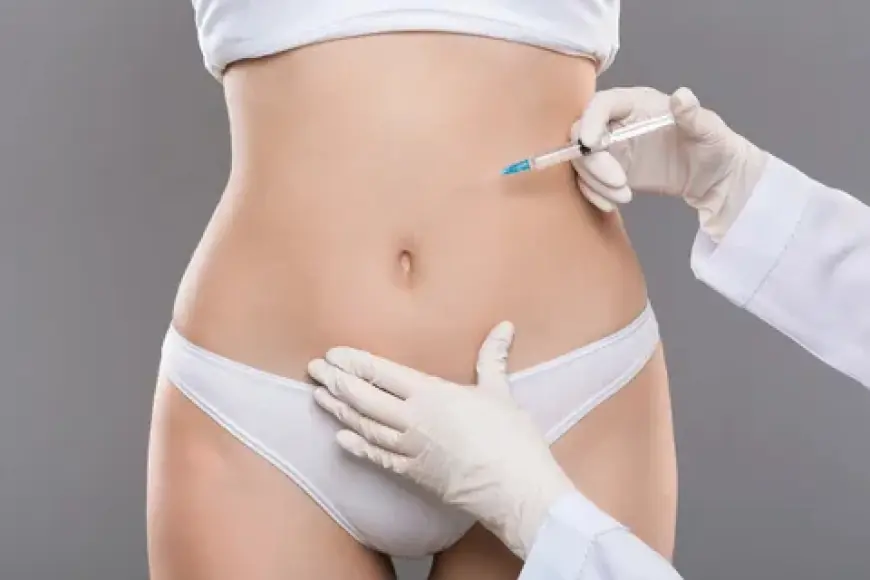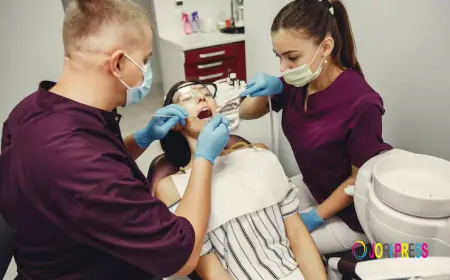Laser Liposuction in Riyadh: Target Stubborn Fat Today

Laser liposuction has become a revolutionary solution for individuals struggling with localized fat that resists diet and exercise. This minimally invasive procedure uses advanced laser technology to liquefy fat cells for easier removal, resulting in a contoured and toned body without the extensive downtime associated with traditional liposuction. For those seeking an effective and modern fat-reduction method, Liposuction in Riyadh(عملية شفط الدهون في الرياض) offers precise targeting of stubborn fat deposits with added skin tightening benefits, making it a highly appealing option today.
What is Laser Liposuction?
Laser liposuction, also known as laser-assisted lipolysis or laser lipolysis, involves the use of high-intensity laser light delivered via a small fiber inserted through tiny incisions. This laser energy heats and melts fat cells, turning them into a liquid form that can then be gently suctioned out of the body. Unlike conventional liposuction, this technique minimizes damage to surrounding tissues and promotes collagen production, which helps tighten loose skin in the treated area. This dual effect results in a smoother and more sculpted physique.
How Does Laser Liposuction Work?
Targeted Fat Breakdown
The laser fiber emits thermal energy directly to fat cells, breaking down their membranes and liquefying the fat. This process facilitates easier and more precise fat removal, especially from areas like the abdomen, hips, thighs, back, and neck.
Skin Tightening Effect
Beyond fat removal, the heat generated by the laser stimulates collagen synthesis in the skin. This collagen boost helps enhance skin elasticity and firmness, which is particularly beneficial for those worried about sagging skin after fat extraction.
Advantages of Laser Liposuction Over Traditional Liposuction
-
Minimally Invasive: Smaller incisions and less tissue trauma mean quicker healing and minimal scarring.
-
Reduced Pain and Swelling: Patients often experience less discomfort and bruising compared to traditional methods.
-
Shorter Recovery Time: Most individuals can resume normal activities within a few days.
-
Effective Skin Tightening: The laser’s stimulation of collagen production helps to avoid loose or saggy skin post-procedure.
Ideal Candidates for Laser Liposuction
Laser liposuction is best suited for individuals who are close to their ideal body weight but have stubborn fat deposits resistant to diet and exercise. Candidates should have good skin elasticity to benefit from the skin tightening effects. Those with significant skin laxity or medical conditions should consult a specialist to assess suitability.
Preparing for Your Laser Liposuction Procedure
Medical Evaluation and Consultation
A detailed consultation involves discussing your health history, expectations, and desired treatment areas. The surgeon will evaluate fat distribution and skin condition to tailor a personalized treatment plan.
Pre-Procedure Guidelines
Patients are often advised to avoid smoking, discontinue certain medications that might increase bleeding risks, and maintain a healthy lifestyle leading up to the procedure.
What to Expect During the Procedure
Laser liposuction typically takes less than an hour depending on the number and size of areas treated. It is generally performed under local anesthesia with sedation for patient comfort. The surgeon makes small incisions to insert the laser fiber and a cannula for fat removal. The procedure is precise, ensuring even sculpting with minimized tissue damage.
Recovery and Aftercare
Immediate Post-Procedure Phase
Mild swelling, bruising, and tenderness are common but usually subside within a week. Patients are advised to wear compression garments to support healing and reduce swelling.
Returning to Activities
Light activities can often be resumed within days, while more strenuous exercises should be avoided for a few weeks to ensure optimal healing. Follow-up visits help monitor progress and address any concerns.
Benefits of Choosing Laser Liposuction in Riyadh
-
Enhanced body contour and definition with minimal downtime.
-
Targeted fat removal from problematic areas for a more athletic appearance.
-
Improved skin tone through laser-triggered collagen production.
-
Safe and effective procedure backed by advanced medical technology.
Common Risks and How They Are Minimized
While laser liposuction is generally safe, potential risks include infection, uneven contours, or temporary numbness. These risks are minimized by selecting experienced surgeons and adhering strictly to pre- and post-operative care instructions.
Maintaining Results Long-Term
The fat cells removed by laser liposuction do not regenerate, but maintaining a healthy lifestyle with proper diet and regular exercise is essential to prevent new fat accumulation in treated and untreated areas.
Frequently Asked Questions (FAQs)
1. How soon will I see results after laser liposuction?
Initial improvements are visible shortly after treatment, with optimal results typically emerging after several weeks as swelling resolves and skin tightens.
2. Is laser liposuction suitable for all body areas?
Yes, it is versatile and can be performed on common problem areas like the abdomen, thighs, arms, back, and chin.
3. How painful is the laser liposuction procedure?
Thanks to local anesthesia and the minimally invasive nature of the procedure, most patients experience only mild discomfort during and after treatment.
4. Will the skin be loose after fat removal?
Laser liposuction promotes collagen production, helping to tighten the skin and reduce sagging, which is a key advantage over traditional liposuction.
Liposuction in Riyadh through laser technology provides a safe, efficient, and modern approach to sculpting the body by targeting stubborn fat deposits. With benefits ranging from less downtime to skin tightening, it empowers individuals to achieve their aesthetic goals and regain confidence. Proper preparation, choosing a qualified surgeon, and post-procedure care are critical for maximizing the transformative benefits of this innovative procedure.
What's Your Reaction?
 Like
0
Like
0
 Dislike
0
Dislike
0
 Love
0
Love
0
 Funny
0
Funny
0
 Angry
0
Angry
0
 Sad
0
Sad
0
 Wow
0
Wow
0
















































